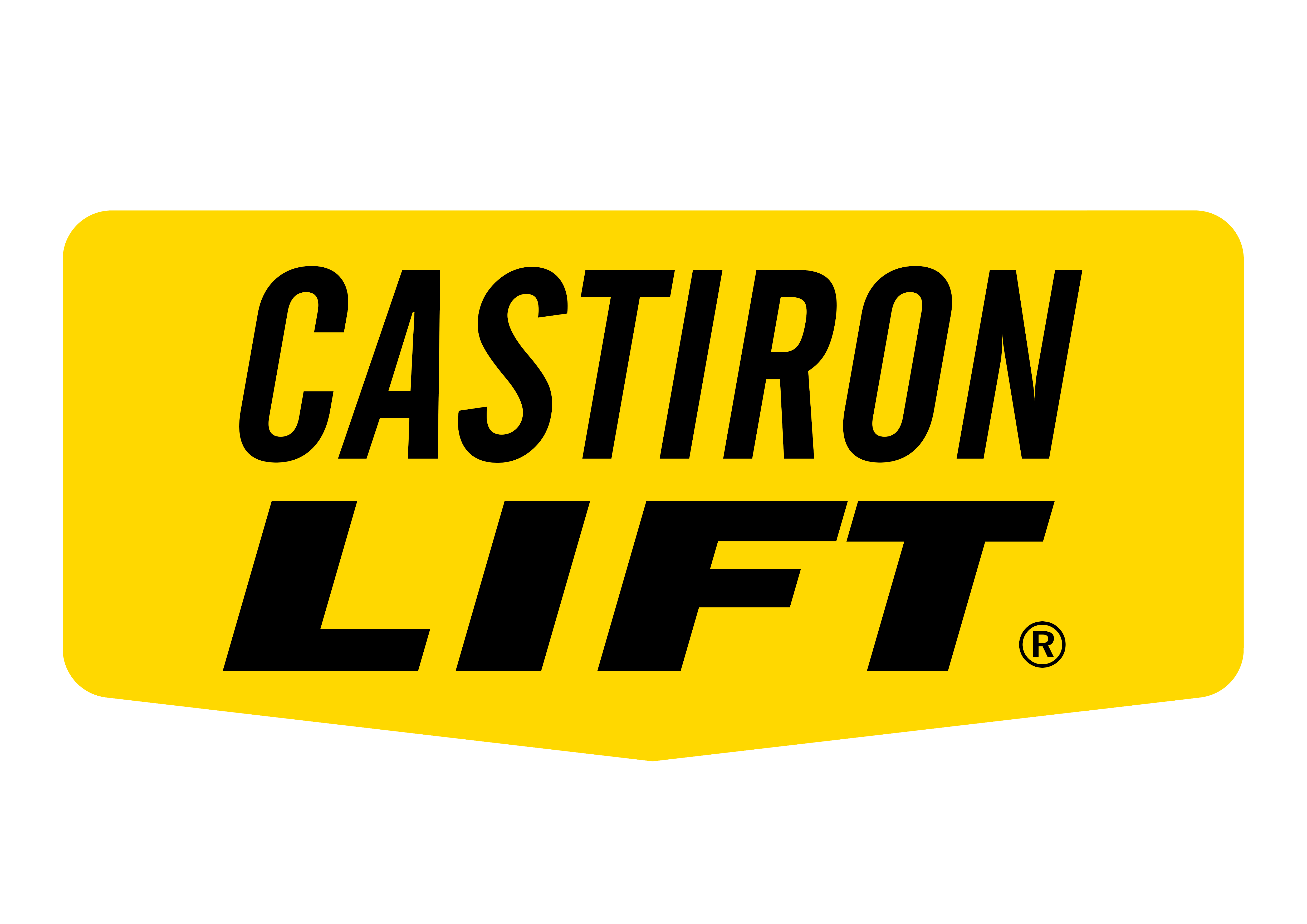Top 10 Benefits of Weightlifting
Weightlifting, often associated with bulging muscles and competitive athletes, is a powerful form of exercise that offers numerous benefits beyond just physical strength. Whether you're a beginner or an experienced lifter, incorporating weightlifting into your fitness routine can have a profound impact on your overall well-being. In this article, we will delve into the surprising benefits of weightlifting and explore how it can positively transform your life.
Physical Benefits of Weightlifting
One of the most obvious benefits of weightlifting is the physical transformation it brings. Regular weightlifting sessions can help you build lean muscle mass, increase your metabolic rate, and improve your body composition. As you engage in resistance training, your muscles adapt and grow stronger, leading to increased muscle definition and a toned physique. Additionally, weightlifting can boost your metabolism, allowing you to burn calories even when at rest. This makes weightlifting an effective strategy for weight management and maintaining a healthy body weight.
Weightlifting also plays a vital role in enhancing your cardiovascular health. Contrary to popular belief, weightlifting isn't just about building muscles; it can also improve your heart health. When you lift weights, your heart rate increases, promoting better blood circulation and oxygen delivery to your muscles. This cardiovascular stimulation can lower your risk of heart disease, reduce blood pressure, and improve overall cardiovascular function.
Mental Benefits of Weightlifting
In addition to the physical advantages, weightlifting offers a myriad of mental benefits. Engaging in regular weightlifting sessions can significantly improve your mental well-being and overall quality of life. When you lift weights, your body releases endorphins, also known as "feel-good" hormones. These endorphins help alleviate stress, boost your mood, and combat symptoms of depression. Weightlifting can be a powerful tool to cope with anxiety and release tension, allowing you to experience a sense of calm and tranquility.
Furthermore, weightlifting can also enhance cognitive function and improve brain health. Studies have shown that resistance training can increase blood flow to the brain, promoting the development of new neurons and improving memory and cognitive performance. By incorporating weightlifting into your fitness routine, you can enhance your focus, concentration, and mental clarity, improving your productivity and overall cognitive abilities.
Weightlifting for Weight Loss
If you're on a weight loss journey, weightlifting can be a game-changer. While cardiovascular exercises like running or cycling are often associated with weight loss, weightlifting can be equally effective, if not more so. When you engage in weightlifting, your body continues to burn calories even after your workout session. This is known as the "afterburn effect" or excess post-exercise oxygen consumption (EPOC). By incorporating weightlifting into your fitness routine, you can increase your basal metabolic rate, helping you burn more calories throughout the day, even at rest.
Moreover, weightlifting promotes the growth of lean muscle mass, which further aids in weight loss. Muscle tissue is metabolically active, meaning it burns more calories than fat tissue. As you build muscle through weightlifting, your body becomes more efficient at burning calories, resulting in a higher overall calorie expenditure. Additionally, weightlifting can help prevent muscle loss during a calorie deficit, ensuring that the weight you lose comes primarily from fat, rather than muscle.
Weightlifting for Muscle Gain
If your goal is to build muscle and achieve a more muscular physique, weightlifting is the perfect exercise for you. When you lift weights, you create micro-tears in your muscle fibers. As these tears heal, your muscles grow bigger and stronger. By progressively increasing the weight and intensity of your workouts, you can stimulate muscle growth and achieve the desired muscular physique.
To maximize muscle gain, it is essential to follow a structured weightlifting program that targets different muscle groups and incorporates a variety of exercises. Compound exercises such as squats, deadlifts, and bench presses are particularly effective as they engage multiple muscle groups simultaneously, leading to greater muscle activation and growth. Additionally, proper nutrition and adequate rest are crucial for muscle growth, as they provide the necessary nutrients and recovery time for your muscles to repair and grow.
Weightlifting for Overall Fitness
Weightlifting is not just about building muscles; it is a comprehensive form of exercise that can improve your overall fitness level. By engaging in weightlifting, you can enhance your strength, endurance, and power, allowing you to perform daily activities with ease. Whether it's carrying groceries, climbing stairs, or playing sports, weightlifting can provide you with the necessary physical strength and stamina to excel in various aspects of your life.
Moreover, weightlifting is a highly versatile exercise that can be tailored to suit individuals of all fitness levels. Whether you're a beginner or an experienced lifter, you can adjust the weight, repetitions, and intensity of your workouts to match your fitness goals and capabilities. This adaptability makes weightlifting suitable for people of all ages and fitness backgrounds, allowing everyone to reap the benefits of this empowering form of exercise.
Weightlifting for Bone Health
As we age, our bone density naturally decreases, making us more susceptible to fractures and osteoporosis. Fortunately, weightlifting can help counteract this age-related decline in bone density and promote optimal bone health. When you lift weights, the stress placed on your bones stimulates the production of new bone tissue, increasing bone density and strength.
Weightlifting is particularly beneficial for women, as they are more prone to osteoporosis due to hormonal changes during menopause. By engaging in weightlifting, women can significantly reduce their risk of osteoporosis and maintain healthy bones well into their later years. However, it is essential to start with lighter weights and gradually progress to heavier loads to minimize the risk of injury and ensure proper form and technique.
Weightlifting for Stress Relief
In today's fast-paced and stressful world, finding effective strategies to manage stress is crucial for our overall well-being. Weightlifting, with its unique combination of physical exertion and mental focus, can be an excellent stress-relieving activity. When you lift weights, you divert your attention away from everyday worries and immerse yourself in the present moment. This mindfulness allows you to release tension, reduce anxiety, and experience a sense of calm and relaxation.
Additionally, weightlifting provides an opportunity to channel your stress and frustration into something productive. As you lift weights, you can exert your energy and release pent-up emotions, leaving you feeling refreshed and rejuvenated. The physical exertion involved in weightlifting also triggers the release of endorphins, which act as natural mood enhancers and stress relievers. By incorporating weightlifting into your stress management routine, you can achieve a healthier and more balanced state of mind.
Weightlifting for Improved Posture and Balance
In today's sedentary lifestyle, poor posture has become a prevalent issue. Spending long hours hunched over desks and screens can lead to muscular imbalances and postural deviations. Weightlifting can play a pivotal role in correcting these postural imbalances and improving your overall posture and balance.
By engaging in weightlifting exercises that target the muscles responsible for maintaining proper posture, such as the back, shoulders, and core, you can strengthen these muscles and enhance your postural alignment. As your muscles become stronger and more balanced, you will naturally adopt a more upright and aligned posture, reducing the risk of chronic pain and injury.
Furthermore, weightlifting exercises that require stability and control, such as lunges and single-leg deadlifts, can improve your balance and coordination. These exercises challenge your body's ability to maintain equilibrium and engage your core and stabilizing muscles. By incorporating weightlifting into your fitness routine, you can enhance your proprioception and body awareness, leading to improved balance and stability in your day-to-day activities.
Weightlifting for Increased Confidence and Self-Esteem
Weightlifting has the power to not only transform your physical appearance but also boost your self-confidence and self-esteem. As you progress in your weightlifting journey and witness your strength and physical capabilities improve, you will experience a newfound sense of confidence and empowerment. This confidence will transcend beyond the gym, positively impacting various aspects of your life.
Moreover, weightlifting provides a sense of achievement and mastery. As you set goals, overcome challenges, and witness your progress, you develop a sense of self-efficacy and belief in your abilities. This newfound confidence can have a ripple effect, empowering you to take on new challenges, set higher goals, and pursue your passions with unwavering determination.
Weightlifting for Aging Well
Aging is an inevitable part of life, but weightlifting can help you age gracefully and maintain your independence and vitality as you grow older. As we age, our muscle mass naturally declines, leading to reduced strength, mobility, and functional capacity. Weightlifting can counteract this age-related muscle loss, helping you maintain muscle mass and strength well into your later years.
Additionally, weightlifting can improve bone density, balance, and coordination, reducing the risk of falls and fractures, which are common among older adults. By engaging in weightlifting exercises that target major muscle groups, such as squats and bench presses, you can preserve muscle mass, increase bone density, and enhance your overall physical function.
Furthermore, weightlifting can have a profound impact on your mental well-being as you age. By stimulating the release of endorphins and promoting neuroplasticity, weightlifting can enhance cognitive function, memory, and mental clarity, reducing the risk of cognitive decline and age-related neurological diseases.
Safety Tips for Weightlifting
While weightlifting offers numerous benefits, it is essential to prioritize safety to prevent injuries and ensure optimal results. Here are some essential safety tips to keep in mind when engaging in weightlifting:
-
Start with a proper warm-up: Begin each weightlifting session with a dynamic warm-up to prepare your muscles and joints for the upcoming workout. Incorporate exercises such as lunges, arm circles, and bodyweight squats to increase blood flow and activate your muscles.
-
Use proper form and technique: Focus on maintaining proper form and technique throughout your weightlifting exercises. This will not only maximize the effectiveness of your workouts but also minimize the risk of injuries. Consider working with a qualified personal trainer to learn the correct form and technique for each exercise.
-
Gradually increase the weight and intensity: Start with lighter weights and gradually increase the load as your strength and technique improve. Avoid lifting excessively heavy weights that compromise your form and increase the risk of injury.
-
Listen to your body: Pay attention to your body's cues and signals. If you experience pain, discomfort, or dizziness during your weightlifting sessions, stop the exercise and seek medical attention if necessary. It's important to push yourself, but not at the expense of your safety and well-being.
-
Allow for proper rest and recovery: Incorporate rest days into your weightlifting routine to allow your muscles time to repair and recover. Overtraining can lead to muscle fatigue, decreased performance, and an increased risk of injuries. Aim for at least one to two days of rest per week.
Getting Started with Weightlifting
If you're new to weightlifting, getting started can seem intimidating. However, with the right mindset, guidance, and approach, you can embark on a successful weightlifting journey. Here are some tips to help you get started:
-
Set clear goals: Define your fitness goals and determine what you want to achieve through weightlifting. Whether it's building muscle, losing weight, or improving overall fitness, having clear goals will help you stay motivated and focused.
-
Seek professional guidance: Consider working with a qualified personal trainer or strength coach who can design a personalized weightlifting program based on your goals and fitness level. They can teach you proper form and technique, ensure safety, and provide valuable guidance and support throughout your weightlifting journey.
-
Start with the basics: Begin with fundamental weightlifting exercises that target major muscle groups, such as squats, deadlifts, bench presses, and rows. Mastering these compound exercises will provide a solid foundation for your weightlifting journey.
-
Progress gradually: As you gain strength and confidence, gradually increase the weight, repetitions, and intensity of your workouts. Aim for progressive overload, which involves consistently challenging your muscles to stimulate growth and adaptation.
-
Stay consistent: Consistency is key when it comes to weightlifting. Aim for regular weightlifting sessions, ideally two to three times per week, to maximize the benefits and ensure continuous progress. Stay committed to your weightlifting routine, even when faced with challenges or setbacks.
Weightlifting is a transformative form of exercise that offers a wide range of benefits for both your body and mind. From building muscle and losing weight to improving posture, balance, and overall well-being, weightlifting has the power to positively impact every aspect of your life. Embrace the power of pumping iron and incorporate weightlifting into your fitness routine to unlock your full potential. Remember to prioritize safety, seek professional guidance if needed, and stay consistent. Start your weightlifting journey today and experience the remarkable benefits it has to offer.
CTA: Ready to unlock the incredible benefits of weightlifting? Start your weightlifting journey today and embrace the power of pumping iron. Consult with a qualified personal trainer or strength coach who can guide you on your path to success. Remember, consistency is key, so stay committed to your weightlifting routine and witness the transformative results it can bring. Begin your weightlifting journey and experience the surprising benefits that await you!
Strength training helps add healthy years to your life by decreasing your risk of injury and falls and enhancing metabolic health markers, such as blood sugar control, insulin sensitivity, and weight loss. In addition, regular heavy lifting improves your body's ability to handle stress, making you more capable of handling whatever hurdles life puts in front of you.
- Burning calories: Weight training can build muscle, which burns more calories at rest than other tissues.
- Improving heart health: Weight training strengthens the major muscle groups in the upper and lower body, which increases blood flow.
- Strengthening bones: The stress put on your bones during strength training activates bone-forming cells, leading to stronger, denser bones.
- Reducing the risk of injury and falls: Strength training can decrease your risk of injury and falls.
- Enhancing metabolic health: Strength training can enhance metabolic health markers, such as blood sugar control, insulin sensitivity, and weight loss.
- Improving sleep: Strength training can improve sleep quality.
- Increased metabolism
- Control of blood sugar levels
- Reduced risk of diabetes
- Reversal of the effects of osteoporosis in old age
- Building lean muscle mass
- Boosting mental health and sharpening thinking skills
- Relieving pain, improving posture, and balance



























